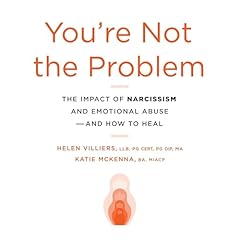
The Power of Parting
Finding Peace and Freedom Through Family Estrangement
No se pudo agregar al carrito
Solo puedes tener X títulos en el carrito para realizar el pago.
Add to Cart failed.
Por favor prueba de nuevo más tarde
Error al Agregar a Lista de Deseos.
Por favor prueba de nuevo más tarde
Error al eliminar de la lista de deseos.
Por favor prueba de nuevo más tarde
Error al añadir a tu biblioteca
Por favor intenta de nuevo
Error al seguir el podcast
Intenta nuevamente
Error al dejar de seguir el podcast
Intenta nuevamente
 Exclusivo para miembros Prime: ¿Nuevo en Audible? Obtén 2 audiolibros gratis con tu prueba.
Exclusivo para miembros Prime: ¿Nuevo en Audible? Obtén 2 audiolibros gratis con tu prueba.
Elige 1 audiolibro al mes de nuestra inigualable colección.
Acceso ilimitado a nuestro catálogo de más de 150,000 audiolibros y podcasts.
Accede a ofertas y descuentos exclusivos.
Premium Plus se renueva automáticamente por $14.95 al mes después de 30 días. Cancela en cualquier momento.
Compra ahora por $19.80
-
Narrado por:
-
Eamon Dolan
-
De:
-
Eamon Dolan
After decades of enduring his mother’s physical and psychological torment, after years of trying in vain to set boundaries, Eamon Dolan took a radical step: he cut his mother out of his life. No more phone calls, no more visits, no more contact. Parting with his abuser gave him immediate relief and set him on a path toward freedom, confidence, and joy like none he had ever felt before.
In The Power of Parting, Dolan has written the book he wishes he’d had when he was struggling to free himself from his mother’s abuse. In the process, he discovered how widespread estrangement really is. At least 27 percent of Americans are estranged from a parent, sibling, or other family member. He also learned why so much stigma surrounds this common—and often lifesaving—phenomenon. Even among therapists—the professionals who would seem most attuned to the pain relatives can inflict—there’s a bias toward reconciliation, when millions of their patients need instead to escape their abusers’ grip. Estrangement, Dolan realized, should be understood and embraced, not shrouded in shame.
Drawing on his own suffering and healing, as well as experts’ advice and the testimony of other courageous survivors, Dolan first explains why abuse is much different and more prevalent than we may think, how it harms us in childhood and beyond, and why limiting or eliminating contact might be our best possible choice. Then, he walks readers through the steps of a successful, positive estrangement: how to take crucial time for yourself; how to make sure no one can gaslight you into minimizing or forgetting; how to set rules for your abuser and—if they can’t or won’t respect your limits—how to end a toxic relationship. He also offers valuable counsel on how to ease the guilt and grief that often accompany parting, and how to break the cycle of abuse that was likely passed down to you through many generations.
With a convincing blend of clarity and empathy, Dolan encourages others to do what he ultimately did for himself: determine whether the people in your life treat you with the care and concern you deserve—and part ways with them if they don’t.
Los oyentes también disfrutaron:




















Las personas que vieron esto también vieron:









For the Abused and Fortunate
Se ha producido un error. Vuelve a intentarlo dentro de unos minutos.
An important message, but only one person's story
Se ha producido un error. Vuelve a intentarlo dentro de unos minutos.
Illuminating!
Se ha producido un error. Vuelve a intentarlo dentro de unos minutos.
Where was this book 30 years ago?
Se ha producido un error. Vuelve a intentarlo dentro de unos minutos.
Empowering as a survivor of childhood emotional neglect and abuse
Se ha producido un error. Vuelve a intentarlo dentro de unos minutos.


